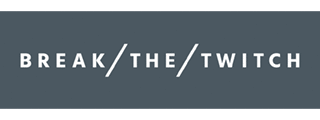
I’m a huge Apple nerd. I’ve had an iPhone since the first one came out, and this pocket computer has been within arms reach ever since. It’s awesome because I can do so much from just about anywhere at any time.
But as awesome as my iPhone is, it can also be terrible.
Over on Kickstarter, all sorts of clever “distraction-free” phones have been popping up. These dumb, or dumber, phones are there to help folks disconnect either permanently or temporarily with all the apps, pings, notifications, and distractions of their fancy phone.
I’ll stick with my iPhone, thank you very much. Because the problem that these dumb phones are trying to solve is not a problem at all, but rather a symptom.
In fact, what most people consider to be problems related to focus are actually just symptoms.
Ask someone what their biggest challenge is related to focus, and they’ll probably tell you it has to do one of two things: too many distractions or not enough time.
Yet, in truth, the biggest challenge we face related to focus is usually not distractions and procrastination, but rather the biggest challenge we face is our lack of clarity.
Elle Luna has a beautiful book, The Crossroads of Should and Must. In her book, she writes about how many of us have been told what we should be doing, but few of us know deep in our hear what it is we must do.
There is a reason we are treating the symptoms and not the core problem.
It’s because productivity itself tends to be measured by surface-level metrics. Such as how well we use our task management system, how organized our calendar app is, how fast we can blaze through a pile of emails, and how fluidly we flow from one meeting to the next.
However, these standards are not measuring our productivity, but rather how efficient we are at administrative tasks.
Is the stay-at-home dad who spends most of his day changing diapers and cleaning up messes any less “productive” than his wife who is a corporate CEO?
The metrics we most frequently use to measure productivity have turned against us. They skew towards rewarding effective busywork while giving little dignity to meaningful work.
Thus, we need to start defining productivity differently.
It’s important to put more focus on consistently giving our time and attention to the things which are most important, rather than emphasizing the party tricks of balancing many plates at once and clearing our inboxes.
How do we do that? There are two big buckets.
First, you need clarity about what is truly important to you.
As Elle Luna would say, what is your “must”?
Alas, clarity is not microwaveable. It requires time. Time away from all the noise and time to think and to ask yourselv challenging questions about your roles in life, your values, your dreams, and more.
Your life’s vision and values are at the very foundation of meaningful productivity. Clarity of understanding about who you are and who you want to be in your character, values, vocation, and relationships is all paramount to meaningful productivity.
Secondly, you need a bias toward action.
Your bias toward action will keep you on track with being productive in the areas that matter (as defined from your aforementioned vision and values).
When you get clarity about what matters, resistance will show up. It will come from within and without. And so, here are a few tips for overcoming procrastination and staying motivated to do the stuff that matters.
1. Show Up Every Day: You’ve got to make doing the most important work part of Your Routine. Choose to do something every day until eventually it chooses you back. By having a routine in place for your work, it will create the space you need to do work that matters, while also reserving your willpower and creative energy for actually doing the work.
2. Celebrate Your Progress: At the end of every day, I open up my Day One journal and write down the highlights of what I accomplished that day. This is something Ben Franklin would do. At the end of each day he would ask himself, “What good have I done today?” By recognizing and rewarding our small wins each day, it builds up an intrinsic motivation that makes me want to keep doing the important work.
3. Avoid Inbox Addiction (a.k.a. “The Just Checks”): I define Inbox Addiction as an urge to continuously check one’s news feeds, social feeds, and message inboxes despite undesirable and even negative consequences or a desire to stop.
The addiction of checking and refreshing our inboxes, timelines, and other vanity statistics robs us of our ability to focus and do deep work. It’s a drain on our time as well as a drain on our creative energy that conditions us to never focus on any one thing for longer than a few minutes.
4. Avoid Urgency Addiction: Urgency addiction is a need to only ever spend our time working on things which are “urgent in the moment”. We gravitate toward this because urgency feels exciting. There is a natural momentum and adrenaline that accompanies things which are urgent.
But when our nature is to only ever focus on the urgent issues, we are robbed of doing our most important work. Because essential work is often mundane and not yet in an emergency status.
When something is essential, it is absolutely necessary. Essential is the very definition of what’s truly important.
Urgent is relative, but essential is absolute. While urgency is usually defined by external factors, essentialness is fundamentally important to a project or goal, regardless of external factors.
To let your life be taken over by what is only urgent is to live like a child – caring only about what seems important right now with no regard for the future and without even knowing what is actually important today.
Defining Meaningful Productivity
When you define meaningful productivity like this, it changes everything. Suddenly it’s less about the quality of art you produce and it’s more about being valuable, meaningful, and honest in everything you touch.
Meaningful productivity can and should be integrated into every area of life: work, family, rest, personal life, etc.
And therefore, meaningful productivity becomes a choice.
I try to make that choice when I’m at my keyboard, when I’m on a date with my wife, when I have half an hour of quiet alone time, or when I’m playing frisbee in the back yard with my boys. In those moments, it’s not about the context for how I’m being productive, rather it’s about my choice to be honest, true, vulnerable, and personal.
